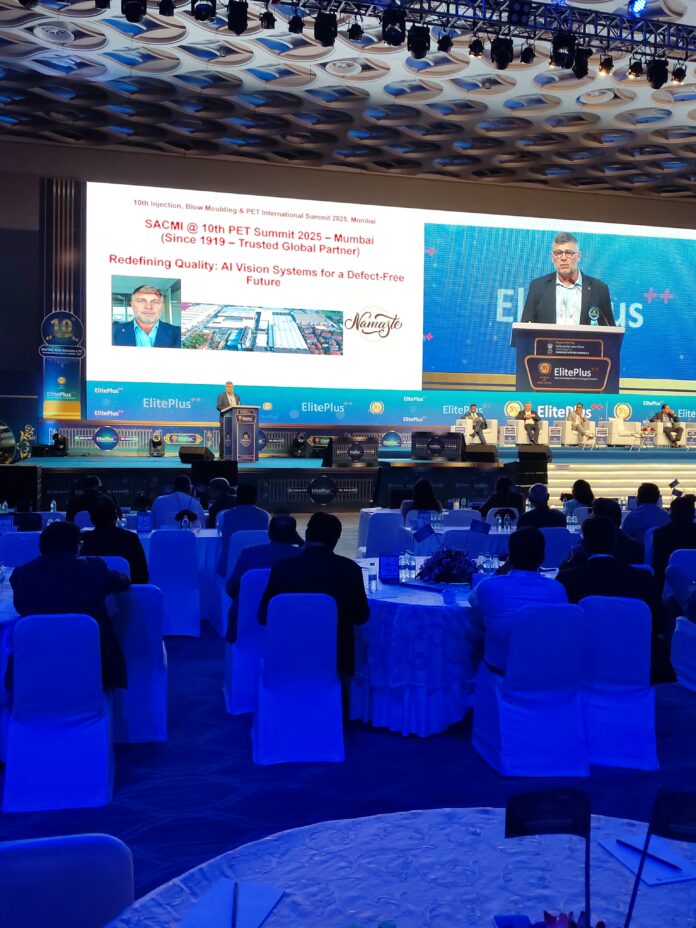
At the 10th Injection, Blow Moulding & PET International Business Summit 2025 in Mumbai, Massimo Gani, sales specialist, rigid packaging business unit, at Sacmi Group, presented an overview of the company’s legacy, global operations, and its latest developments in vision systems for PET preform inspection—highlighting the increasing role of artificial intelligence in driving manufacturing efficiency and quality control.
Opening his session, Gani explained that Sacmi, with a global workforce of around 5,000 and a turnover approaching 2 billion Euros, serves multiple industries, including ceramics, chocolate processing, intralogistics, and rigid packaging. In India, the group operates from three different locations, including a dedicated rigid packaging centre in Mumbai.
Focusing on Sacmi’s rigid packaging division, Gani outlined the company’s capabilities in delivering turnkey plants for producing plastic and metal closures, preforms, and containers. These production lines integrate Sacmi’s own compression and injection moulding technologies, along with in-house developed vision inspection systems.
Today, Sacmi provides a full range of preform inspection systems, including inline, high-speed offline, and low-speed offline units, designed to minimise downtime and operator intervention.
A key highlight of the presentation was Sacmi’s approach to intelligent defect detection. Gani said their AI-powered systems are not designed merely to reject faulty parts but to support operators in diagnosing root causes and preventing recurring issues. These systems are able to adjust automatically during format changes, without requiring manual calibration—enhancing production uptime and consistency.
He said the software’s ability to provide instant and actionable feedback makes it a valuable tool in reducing material waste and maintaining brand reputation. Recent applications of AI, he noted, have allowed Sacmi’s engineers to respond rapidly to complex inspection challenges—even in non-rigid packaging sectors such as chocolate—developing solutions within days that would have previously taken months.
Gani concluded that in countries like India—where innovation, software development, and AI expertise are globally recognized—these intelligent vision systems should be seen not just as tools, but as strategic partners in manufacturing. Sacmi’s ongoing investment in AI and digital assistance technologies, he said, aims to further enhance predictive defect detection, improve classification, and help customers take proactive corrective measures on the production floor.










